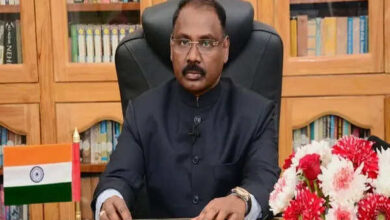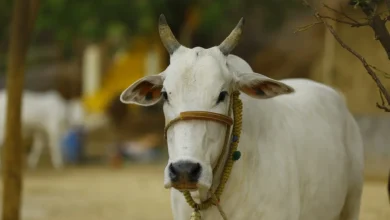SC questions Naidu’s public allegations on Tirupati laddu controversy amid ongoing investigations
The Supreme Court's plea to separate religion from politics is hypocritical considering Hindu temples continue to be under govt control.

The recent Supreme Court proceedings concerning the adulteration of Tirupati Laddu Controversy have sparked considerable discussion, highlighting the complex interplay of faith, politics, and public dialogue in India. The court’s observations focused on distinguishing religious sentiments from political strategies, particularly regarding allegations made by Andhra Pradesh Chief Minister N. Chandrababu Naidu.
The controversy originated when Naidu alleged that during the administration of Y.S. Jagan Mohan Reddy, animal fat was utilized in the preparation of laddus at the Tirumala Tirupati Temple, a site of great significance for Hindus. This assertion ignited a political uproar, with Naidu claiming that tainted ghee was provided to create these religious offerings. He reportedly backed his claims with laboratory reports presented as evidence.
During the hearing on September 30, 2024, a bench consisting of Justices B.R. Gavai and K.V. Viswanathan underscored the importance of public officials maintaining a clear separation between religion and politics. Justice Gavai remarked, “At least, we expect the Gods to be kept away from politics,” underscoring the duty of public figures to refrain from making provocative statements that could threaten communal harmony.
The court scrutinized Naidu’s choice to publicize his allegations before the completion of any formal investigation. The Chief Minister made his assertions on September 18, while a First Information Report (FIR) was only filed on September 25, followed by the establishment of a Special Investigation Team (SIT) on September 26. The court deemed this sequence of actions as inappropriate and potentially harmful to public sentiment.
Andhra Pradesh Government’s stand on Tirupati Laddu Controversy
Senior Advocate Mukul Rohatgi, representing the government of Andhra Pradesh, asserted that the petitions against Naidu lacked authenticity and were politically motivated efforts aimed at discrediting the current administration, rather than reflecting genuine concerns regarding food safety.
Rohatgi pointed out that laboratory reports had identified problems with the ghee used in the laddus. He stressed the importance of these reports, arguing that they warranted serious public discourse and served as a foundation for Naidu’s claims regarding possible adulteration.

The advocates maintained that Naidu’s public remarks were intended to promote transparency and accountability concerning food safety at a prominent religious location. They argued that leaders must respond to the concerns of devotees regarding the quality of offerings, asserting that such dialogues are essential in a democratic framework.
Supreme Court’s Position
Justice B.R. Gavai raised concerns about the appropriateness of Naidu’s public statements before the conclusion of the investigation, asking, “You ordered an investigation through SIT. Till the outcome of such an investigation, what was the necessity to go to the press?” This underscores the court’s apprehension regarding the potential impact of allegations on public opinion while an inquiry remains in progress.
The bench expressed doubt about the validity of the laboratory reports submitted by Naidu, indicating that they did not definitively prove that contaminated ghee was utilized in the preparation of the laddus. Justice Gavai noted, “Lab reports prima facie do not clearly show adulterated ghee was used in the laddus,” implying that the conclusions drawn from these reports were hasty.
The court highlighted that statements made by high-ranking officials could profoundly influence the feelings of millions of devotees. Justice K.V. Viswanathan remarked, “We are prima facie of the view that when the investigation is under process, it was not appropriate on the part of a high constitutional functionary to go public with a statement which can affect the sentiments of crores of people”.
The bench also noted that there could be alternative explanations for any contamination detected in ghee samples, proposing that substances such as soybean or palm oil might have been incorrectly identified as animal fats. Justice Gavai remarked that “the substance used may have been soybean or palm oil. It may not have been fish oil,” highlighting the necessity for a meticulous interpretation of laboratory findings.
Advocate Siddharth Luthra, representing the management of the Tirupati Temple, recognized that devotees had lodged complaints concerning the taste and quality of laddus. He suggested that these grievances warranted a deeper investigation into the issue, although he also pointed out that laboratory tests had not definitively established that contaminated ghee was utilized in the preparation of the laddus.
In India, numerous temples, including the Tirumala Tirupati Temple, are administered by governmental entities, specifically state-run trusts. This organizational structure implies that while temples function as places of worship, they are also subject to governmental regulations and oversight. As a result, matters of their administration frequently intersect with political discussions and public accountability.
Considering that temples are under government oversight, the Supreme Court’s instruction to distinguish divine matters from political discourse may appear paradoxical. Critics contend that if the government is tasked with overseeing temple operations, then discussions regarding their management, including claims related to food safety are intrinsically political.
You might also be interested in – Devotee uncovers tobacco in Tirupati Prasadam controversy



